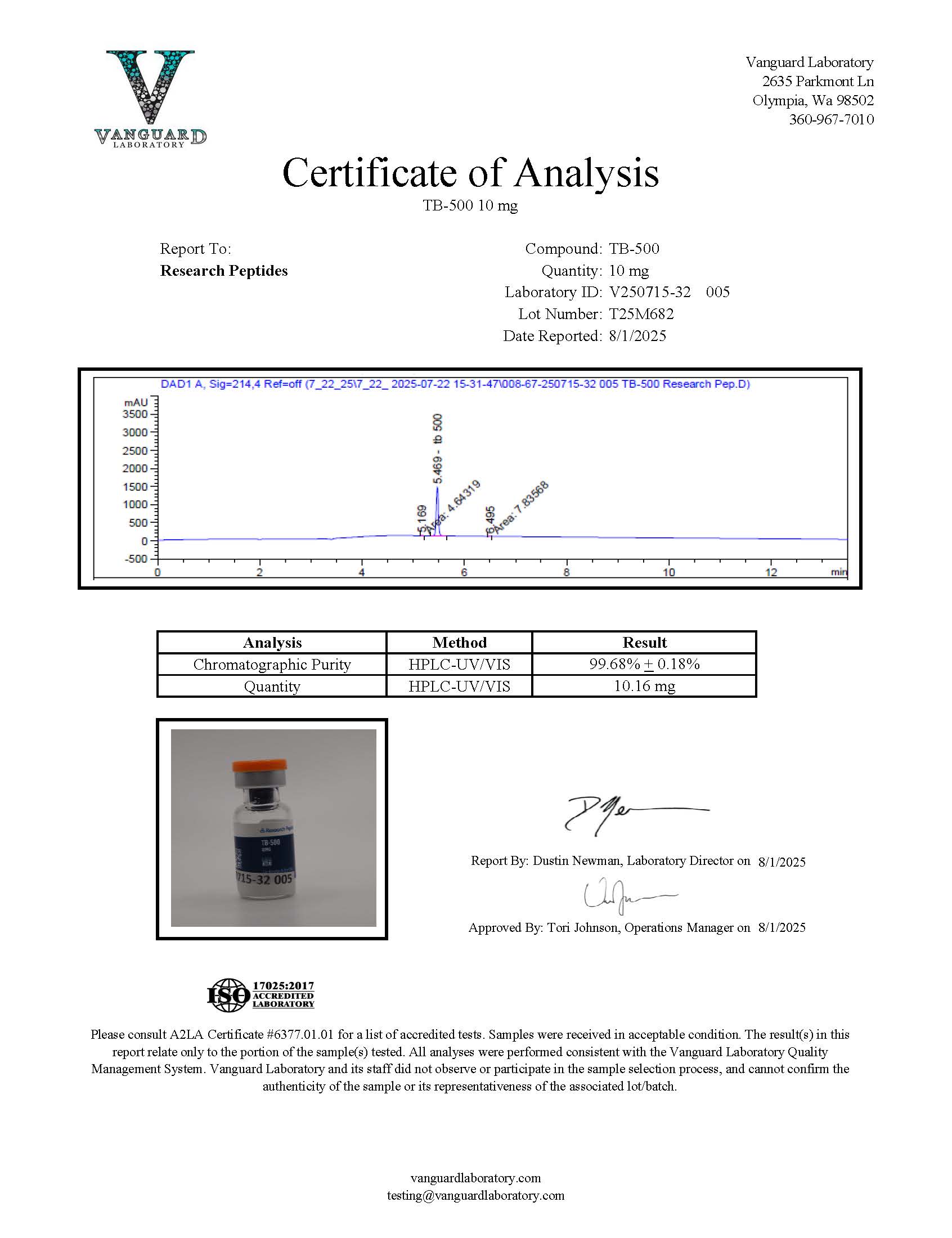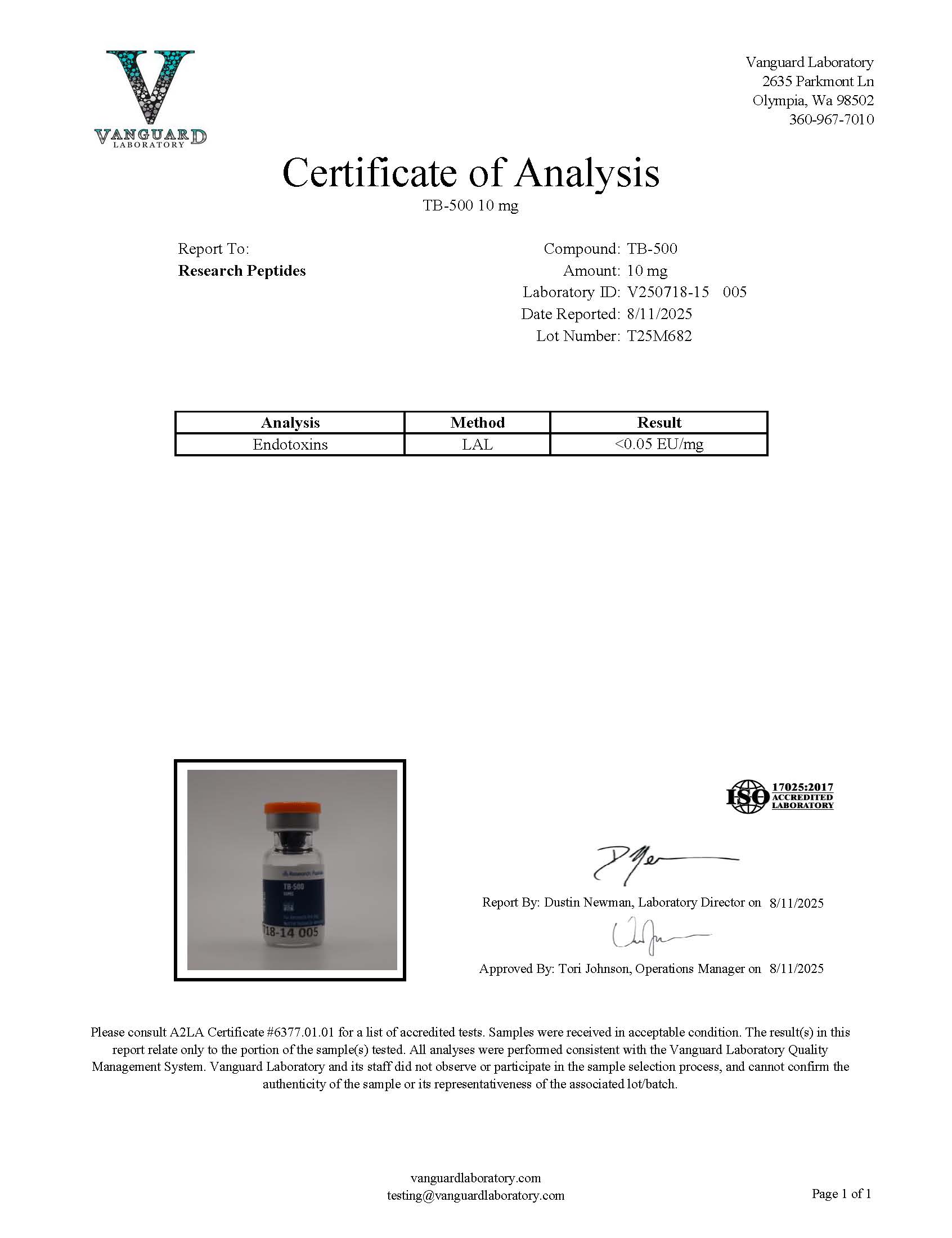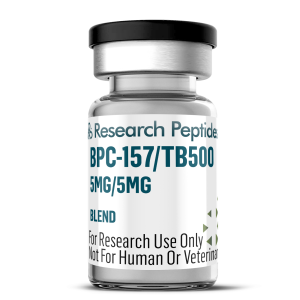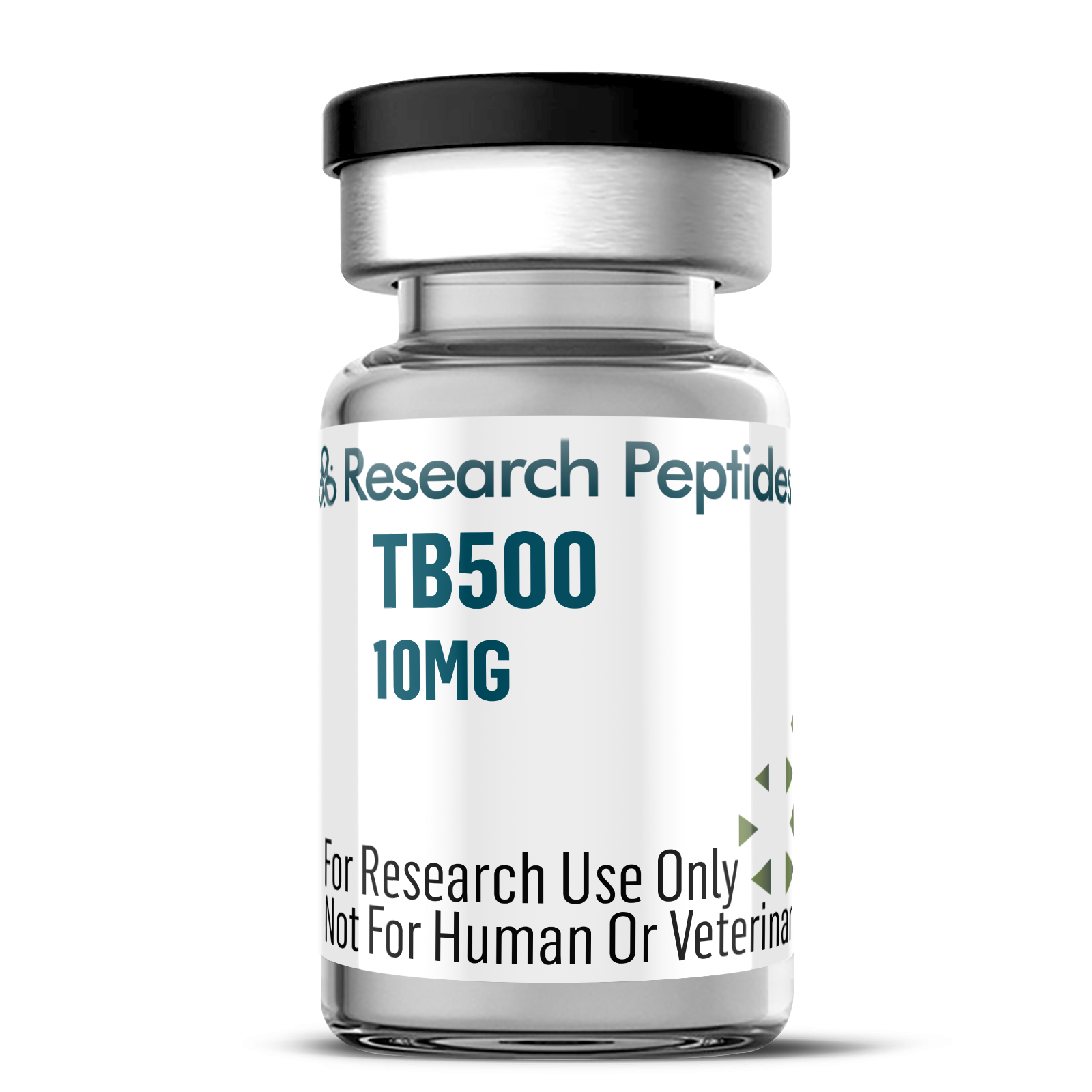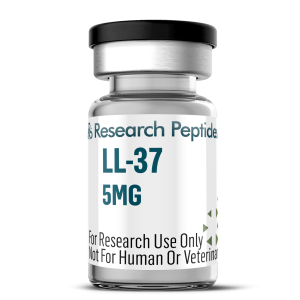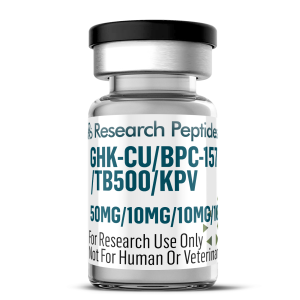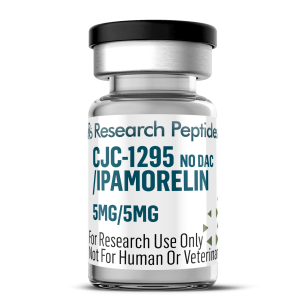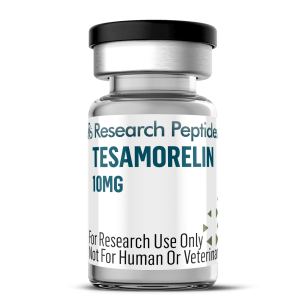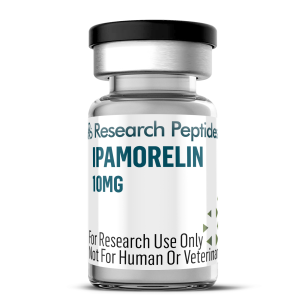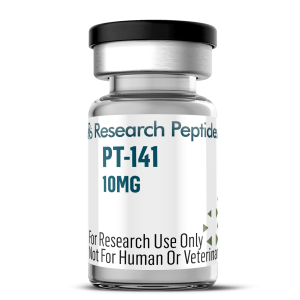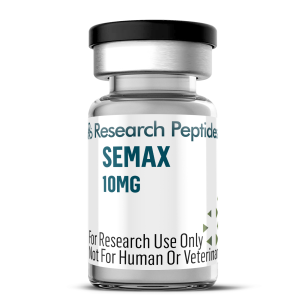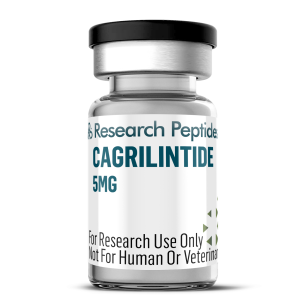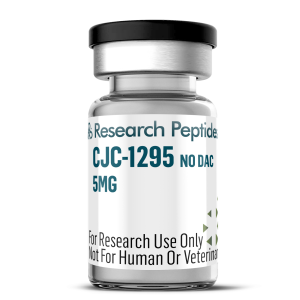Thymosin Beta-4 (TB-500) 10mg
$90.00
In stock
TB-500, also known as Thymosin Beta-4, is a high-purity synthetic peptide consisting of 43 amino acids, designed exclusively for laboratory research. This peptide, derived from the naturally occurring thymosin beta-4 protein, is utilized to investigate tissue repair, angiogenesis, and anti-inflammatory mechanisms. Supplied as a lyophilized powder for reconstitution, TB-500 provides researchers with a precise tool to study its effects on wound healing, muscle regeneration, and metabolic regulation in experimental models.
What is Thymosin Beta-4 (TB-500)?
TB-500, also known as Thymosin Beta-4, is a high-purity synthetic peptide consisting of 43 amino acids, designed exclusively for laboratory research. This peptide, derived from the naturally occurring thymosin beta-4 protein, is utilized to investigate tissue repair, angiogenesis, and anti-inflammatory mechanisms. Supplied as a lyophilized powder for reconstitution, TB-500 provides researchers with a precise tool to study its effects on wound healing, muscle regeneration, and metabolic regulation in experimental models.
Thymosin Beta-4 (TB-500) Structure
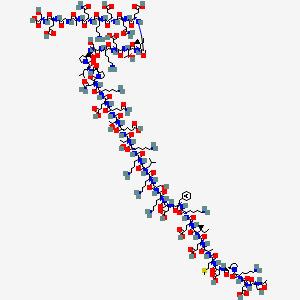
Molecular Formula
Synonyms
Research Applications:
TB-500 is extensively studied in preclinical research for its potent regenerative and anti-inflammatory properties in cellular and animal models. Investigations focus on its ability to promote actin polymerization, enhance cell migration, and stimulate tissue repair, which are critical for muscle recovery following injury or exercise-induced damage. Research also explores its potential to reduce inflammation and oxidative stress, supporting overall health and aiding in the recovery of musculoskeletal tissues. While not directly linked to weight loss, its role in improving metabolic efficiency and reducing inflammation may indirectly support weight management by enhancing exercise recovery and metabolic health.
Research Links:
-
Goldstein, A. L., et al. (2010). “Thymosin beta-4: A multi-functional regenerative peptide.” Annals of the New York Academy of Sciences, 1194, 81-92. https://pubmed.ncbi.nlm.nih.gov/20536453/
-
Reviews TB-500’s role in tissue repair and muscle recovery.
-
-
Philp, D., & Kleinman, H. K. (2010). “Thymosin beta-4 promotes angiogenesis, wound healing, and hair follicle development.” Mechanisms of Ageing and Development, 131(2), 117-123. https://pubmed.ncbi.nlm.nih.gov/20018212/
-
Investigates TB-500’s effects on wound healing and tissue regeneration, relevant to muscle recovery.
-
-
Malinda, K. M., et al. (1999). “Thymosin beta-4 accelerates wound healing in a rat model.” Journal of Investigative Dermatology, 113(3), 364-368. https://pubmed.ncbi.nlm.nih.gov/10469334/
-
Examines TB-500’s role in accelerating tissue repair, supporting muscle recovery research.
-
-
Sosne, G., et al. (2002). “Thymosin beta-4 promotes corneal wound healing and decreases inflammation in vivo.” Experimental Eye Research, 74(2), 293-299. https://pubmed.ncbi.nlm.nih.gov/11950238/
-
Studies TB-500’s anti-inflammatory effects, with implications for muscle recovery and health.
-
-
Crockford, D., et al. (2010). “Thymosin beta-4: A potential therapeutic for muscle repair and regeneration.” Expert Opinion on Biological Therapy, 10(1), 1-8. https://pubmed.ncbi.nlm.nih.gov/19947898/
-
Discusses TB-500’s potential in muscle repair and regeneration.
-
Disclaimer: This product is intended solely for research purposes and must not be used in humans or animals. Purchaser assumes full responsibility for safe and compliant use.
| CAS | 77591-33-4 |
|---|---|
| PubChem CID | 16132341 |
| Molecular Weight | 4963.49 g/mol |
| Amino Acid Sequence | Ac-Ser-Asp-Lys-Pro-Asp-Met-Ala-Glu-Ile-Glu-Lys-Phe-Asp-Lys-Ser-Lys-Leu-Lys-Lys-Thr-Glu-Thr-Gln-Glu-Lys-Asn-Pro-Leu-Pro-Ser-Lys-Glu-Thr-Ile-Glu-Gln-Glu-Lys-Gln-Ala-Gly-Glu-Ser |
| PubChem Link | |
| Product Note | For laboratory use only. Not for human or veterinary use. Proper handling and storage (-20°C) are required to maintain stability. Ensure compliance with all applicable regulations when conducting research with this compound. Peptides will arrive in a lyophilized (powder) form for maximum stability. |
HPLC Testing
